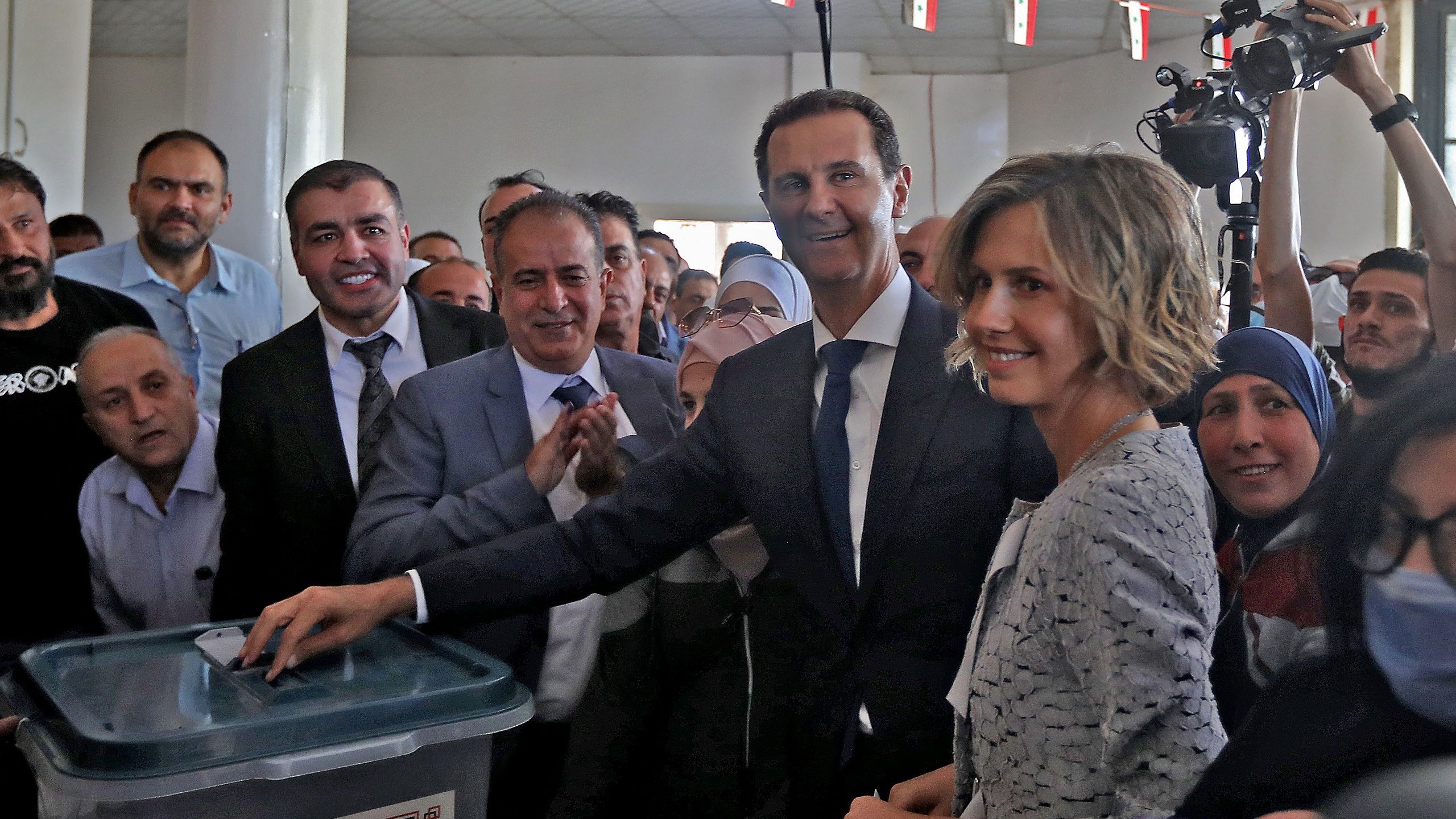Assad Wasn’t Really Elected to a 4th Term
The true power brokers are the foreign countries involved in the civil war
Bashar Assad, after a sham election, was sworn in this weekend for his fourth seven-year term as president.
Much of the international community says May’s vote did not represent the will of the people, with Assad securing over 95% of the vote. So do many Syrians.
“The elections that took place are illegal and the numbers that elected him are incorrect and all of them are fraudulent,” Muhammad Rasheed, an independent Syrian journalist, told The Media Line. “Syria will not recover until Bashar Assad, his corrupt regime, and all those whose hands are stained with blood are held accountable.”
Still, many analysts say that although Assad is a dictator, he does not wield the greatest influence in charting Syria’s future. Instead, Russia, the United States, Iran and Turkey, all of which have become entangled in the civil war, will decide Syria’s fate.
Dr. Jonathan Spyer, director of the Middle East Center for Reporting and Analysis (MECRA), says that unless these powers change their foreign policies, the status quo in Syria will remain as is.
“The real power brokers are not the so-called government of Syria at all, they’re actually the international players who entered the country in the course of the civil war … so for anything to move, we would we need to be looking at the stances of those international powers rather than [the regime’s],” he told The Media Line.
Spyer cites, as examples, such possible policy changes as Washington agreeing to the rebuilding of Syria without conditions or reducing the US troop presence as part of a regional strategy.
“If the United States ceased to be opposed to reconstruction in Syria without a political process, that would open up the possibility of large amounts of money entering Syria to reconstruct the regime-controlled parts of the country,” he said. “Or if the United States decided to withdraw from Syria, perhaps as a part of a broader withdrawal from the Middle East which would include Iraq, then that would probably enable the regime to take control of the 30% of Syria … currently controlled by the US and its Kurdish allies.”
The country is divided into three parts, with Assad, with assistance from Russia and Iran, in control of about 60% of the territory. The Turks control the northwest, and the US and Kurdish forces control the east.
Dr. Samir Alabdullah, a Syria studies expert at the Center for Middle Eastern Studies (ORSAM) in Ankara, agrees that the foreign powers have more influence in Syria than Assad and that the status quo is unlikely to alter anytime soon.
“Nothing is expected to change in Syria after the elections. … Any change in Syria is linked to agreements between the foreign countries that are active in Syria,” he told The Media Line.
“Assad, Russia and Iran are counting on restoring the regime’s legitimacy after the elections and will play on the humanitarian and economic crisis. As for Turkey, its position is currently fixed. … America wants to maintain the balance of weakness in Syria, without major interference in Syria,” he said.
“The current situation is expected to remain the same … pending the conclusion of negotiations with Iran, which may indirectly affect Syria, or any new agreements with Russia,” Alabdullah added. “The humanitarian and economic crisis is expected to increase, especially in the regime-controlled areas.”
In any case, ordinary Syrians have little say. They have borne the brunt of the humanitarian crisis that began 10 years ago after the regime cracked down on demonstrations expressing dissatisfaction with Assad’s rule.
“The situation in Syria, in general, is bad, and this is clear to everyone,” Rasheed said. “Even civilians living in the Assad regime-controlled areas suffer from the brutality of this regime and the constant fear of arrests.
“More than 10 million Syrians have been displaced by the Assad regime,” he continued. “They will not be able to return to their homes as long as Bashar Assad …, Russia and Iran are present in these areas.”
Recently, however, there have been new diplomatic efforts to end the civil war, conducted by the West and some of the Sunni countries, in particular the United Arab Emirates, Egypt and Saudi Arabia, with the latter trying to initiate renewed relations with the Assad regime.
However, Spyer does not believe they have the clout to change what is going on in any major way.
“It is significant, it is notable, that there is now an attempt to build a kind of Arab diplomacy … but my own view is that the Arab states, with all due respect to them, are too weak to be able to impact the situation on the ground, certainly not in a game-changing kind of way,” he said, noting their lack of desire to foot the sizable bill required for such a transformation.


